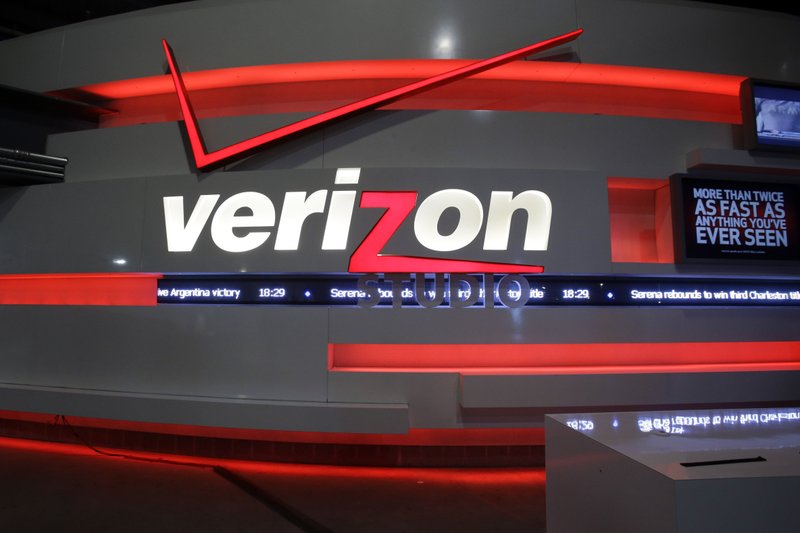WASHINGTON -- A federal appeals court on Tuesday upheld the government's "net neutrality" rules that require Internet service providers such as Comcast and AT&T to treat all Internet traffic equally.
The 2-1 ruling affirms the stance of President Barack Obama's administration and the consumer groups and Internet companies that have pushed net neutrality for years. The Federal Communications Commission's rules block Internet service providers from favoring their own services and disadvantaging others; blocking other sites and apps; and creating "fast lanes" for video and other data-service providers that pay for the privilege.
The ruling upholds the FCC's authority to regulate broadband service as a utility, much like phone service, and to forbid what it considers unreasonable practices. It applies equally to wired broadband providers like cable companies and mobile ones such as Verizon.
"This is an enormous win for consumers," said Gene Kimmelman, president of the public interest group Public Knowledge. "It ensures the right to an open Internet with no gatekeepers."
The 184-page ruling also opens a path for new limits on broadband providers. Already, the FCC has proposed privacy rules for broadband providers, limiting the ability of companies to collect and share data about broadband subscribers.
Consumers are not likely to see an immediate effect, since the rules have been in effect since June 2015. But it could make some services more expensive or limit some content.
The FCC argued that the rules are crucial for allowing customers to go anywhere on the Internet without a provider favoring its own service over that of other competitors. The FCC's move to reclassify broadband came after Obama publicly urged the commission to protect consumers by regulating Internet service as it does other public utilities.
The agency has tried for years to enforce net neutrality, but the same appeals court had twice previously struck down similar rules.
Cable and telecom opponents claim the rules prevent them from recovering costs for connecting to heavy broadband operators such as Netflix that generate a huge amount of Internet traffic. Providers Verizon and AT&T say the rules threaten innovation and undermine investment in broadband infrastructure.
But Judges David Tatel and Sri Srinivasan of the U.S. Appeals Court for the District of Columbia Circuit denied all challenges to the new rules, including claims that the FCC could not reclassify mobile broadband as a common carrier. That extends the reach of the new rules as more people view content on mobile devices.
The telecom industry had argued that broadband was an information service and that the FCC didn't have the authority to change in which camp it fell. But the court ruled that the FCC was justified in reclassifying broadband as a telecom utility because consumers see broadband as a pipe for Internet service and a way to get online to use websites and apps.
"Given the tremendous impact third-party Internet content has had on our society, it would be hard to deny its dominance in the broadband experience," the judges said in their majority opinion.
"Over the past two decades, this content has transformed nearly every aspect of our lives, from profound actions like choosing a leader, building a career, and falling in love to more quotidian ones like hailing a cab and watching a movie," the judges said. "The same assuredly cannot be said for broadband providers' own add-on applications."
In a lengthy dissent, Judge Stephen Williams said he would have struck down the rules. He said the FCC "fails to offer a reasoned basis" for its view that giving preferential treatment to customers who pay for faster service is a problem.
"The commission acts like a bicyclist who rides now on the sidewalk, now the street, as personal convenience dictates," Williams wrote.
Opponents of the ruling vowed to appeal.
"We have always expected this issue to be decided by the Supreme Court, and we look forward to participating in that appeal," said David McAtee, AT&T senior executive vice president and general counsel, in a statement posted on the company's website.
Berin Szoka, President of TechFreedom, a think tank opposed to net neutrality, said the decision gives the FCC "a blank check to regulate the Internet however it sees fit."
FCC Chairman Tom Wheeler praised the ruling as an affirmation of the government's power to keep the Internet open for all consumers.
"After a decade of debate and legal battles, today's ruling affirms the commission's ability to enforce the strongest possible Internet protections -- both on fixed and mobile networks -- that will ensure the Internet remains open, now and in the future," Wheeler said.
Christopher Yoo, a professor of law, engineering and communications at the University of Pennsylvania, said some services could become more expensive for consumers or too difficult for providers to offer.
"It may lead to the withdrawal of some tailored plans that provide enhanced access to certain types of content," Yoo said. Over the long run, he said, the biggest effect will be limits on new services "that deliver video or other particular types of content in an innovative way."
Information for this article was contributed by Sam Hananel and Tali Arbel of The Associated Press, Cecilia Kang of The New York Times and Jim Puzzanghera of the Los Angeles Times.
A Section on 06/15/2016
